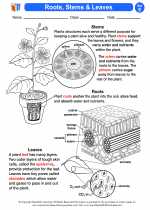Spleen
The spleen is an important organ located in the upper left part of the abdomen, under the ribcage. It is part of the lymphatic system and plays a crucial role in the immune system, as well as in the filtering and recycling of old red blood cells.
Anatomy of the Spleen
The spleen is made up of two main types of tissue: white pulp and red pulp. The white pulp contains immune cells such as lymphocytes, which help fight off infections and foreign substances. The red pulp is responsible for filtering the blood and removing old or damaged red blood cells.
Functions of the Spleen
1. Immune Function: The spleen acts as a filter for the blood, removing old or damaged red blood cells and helping to fight off infections by producing immune cells.
2. Blood Filtration: The red pulp of the spleen filters the blood, removing old or abnormal red blood cells, as well as certain bacteria and other foreign particles.
3. Blood Storage: The spleen also acts as a reservoir for blood, releasing it into the circulatory system when needed, such as during times of physical exertion or in response to injury.
Common Disorders of the Spleen
1. Splenomegaly: This is a condition in which the spleen becomes enlarged, often due to underlying health issues such as infections, liver disease, or certain cancers.
2. Splenic Rupture: Trauma or injury to the abdomen can cause the spleen to rupture, leading to internal bleeding and requiring immediate medical attention.
3. Spleen Disorders: Other conditions such as splenic infarction, hemolytic anemia, and certain infections can also affect the spleen's function.
Study Guide
Here are some key points to remember when studying the spleen:
- Location and anatomy of the spleen
- Functions of the spleen in the immune system and blood filtration
- Common disorders and conditions affecting the spleen
Understanding the role of the spleen in the body's immune response and blood filtration is essential for a comprehensive understanding of the human body's physiology and overall health.
.◂Science Worksheets and Study Guides Fifth Grade. Roots, Stems and Leaves

 Activity Lesson
Activity Lesson
 Worksheet/Answer key
Worksheet/Answer key
 Worksheet/Answer key
Worksheet/Answer key
 Worksheet/Answer key
Worksheet/Answer key
 Worksheet/Answer key
Worksheet/Answer key
 Vocabulary/Answer key
Vocabulary/Answer key
 Vocabulary/Answer key
Vocabulary/Answer key
 Vocabulary/Answer key
Vocabulary/Answer key
